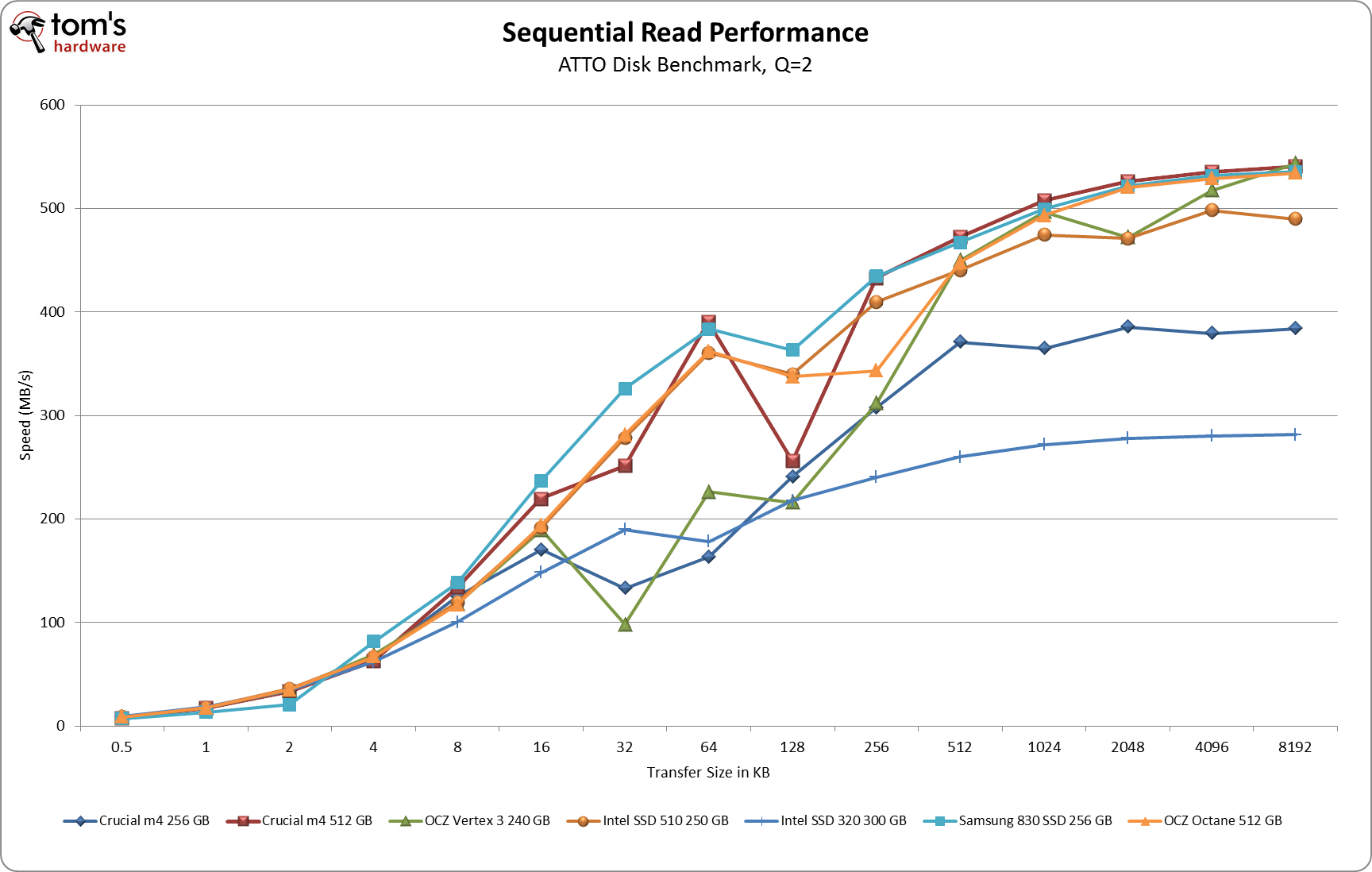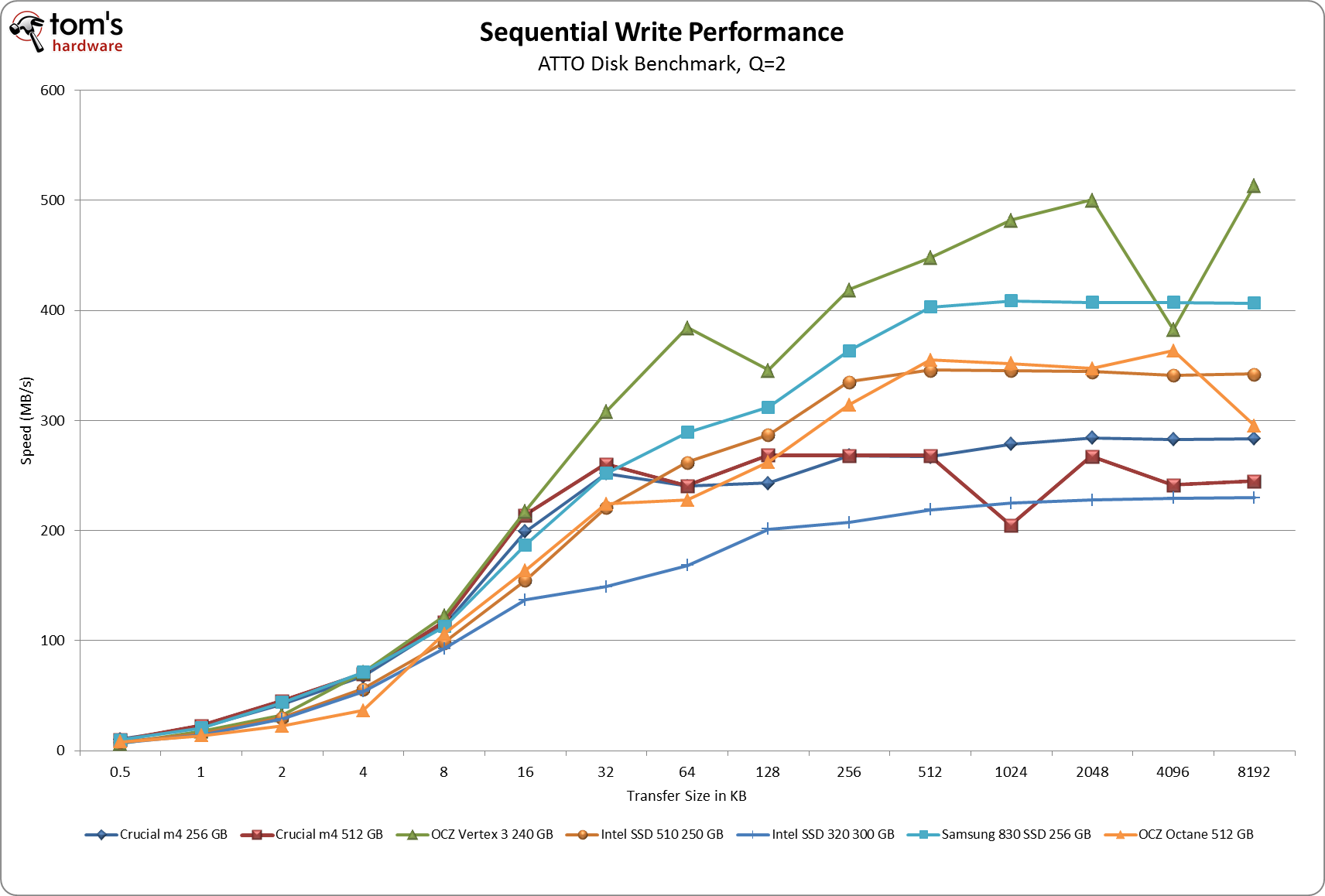OCZ Octane 512 GB SSD Review: Meet Indilinx's Everest Controller
Sequential Performance Versus Transfer Size
All of our sequential transfer tests in Iometer are run at a queue depth of one in order to represent the most typical desktop workloads, where this drive is designed to operate. It's not hard to imagine a situation where an enthusiast might subject an SSD to higher queue depths, though. And indeed, that's where an SSD really stands apart from a conventional hard drive.
Here we're using ATTO to test the sequential reads/writes over 2 GB at a queue depth of two. Why only a queue depth of two? Even when you're pushing more taxing workloads, I/O commands are handled so much faster on an SSD that queue depths higher than two or three are uncommon on an average desktop. Our gaming traces demonstrate this over and over (check out SSD Performance In Crysis 2, World Of Warcraft, And Civilization V and Exploring SSD Performance In Battlefield 3, F1 2011, And Rift if you missed them).
The other reason to use ATTO is its ability to easily test different transfer sizes. While 128 KB is fairly standard for measuring sequential performance, larger or smaller transfers are of course still relevant.
At a queue depth of two, OCZ's Octane performs a lot like the 250 GB SSD 510. Crucial's 512 GB m4 performs slightly better thanks to its 0009 firmware, but Samsung's 830 continues to dominate in sequential transfers. The margin favoring the 256 GB 830 is really small, though, so we're hardly prepared to declare a winner.
OCZ's Vertex 3 leaves other SSDs in the dust at transfer sizes greater than 16 KB. Its SandForce controller enjoys a major advantage as we hammer it with compressible data, though. Subject the same drive to incompressible information at the same queue depth and throughput drops to about 240 MB/s (using 128 KB blocks) instead.
The Octane's Everest controller isn't subject to the same performance stipulations. As a result, sequential transfer rates don't fluctuate depending on the type of data you send down the pipe, and performance continues looking a lot like what Intel's SSD 510 spits back. That's pretty good when you consider that you're getting a 60-70 MB/s speed-up over the largest Crucial m4s.
Get Tom's Hardware's best news and in-depth reviews, straight to your inbox.
Current page: Sequential Performance Versus Transfer Size
Prev Page Benchmark Results: 128 KB Sequential Performance Next Page Performance Over Time And TRIM
